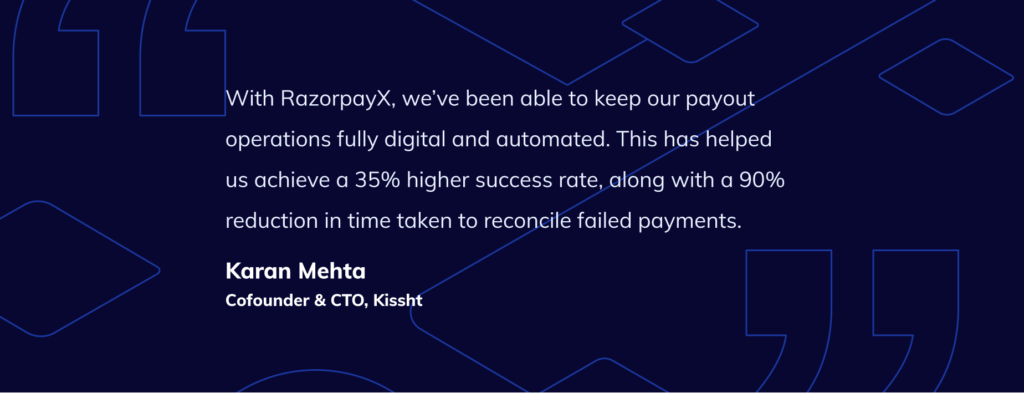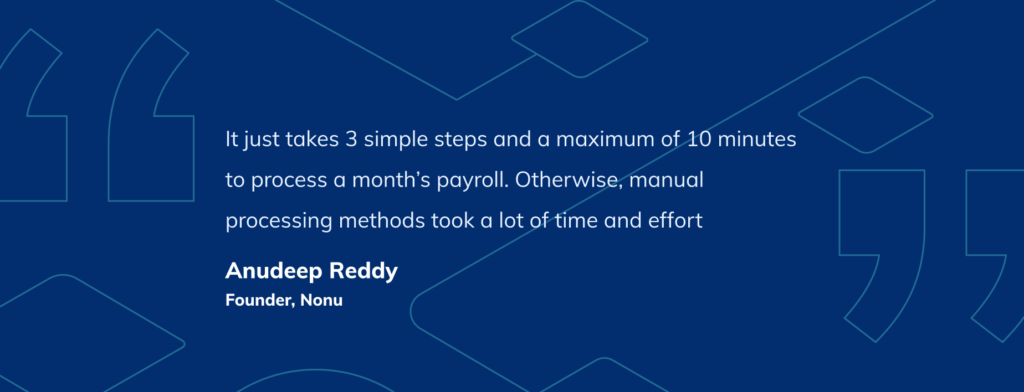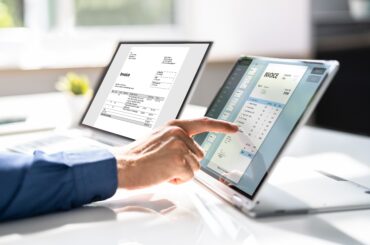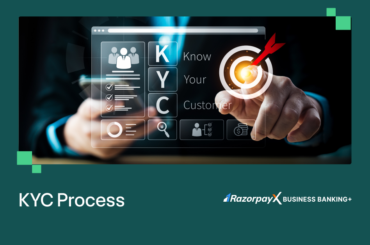Finance automation is no more a ‘good to have’ for businesses. It has become a necessity to replace error-prone manual finance functions. To thrive in the competitive landscape, finance professionals need to take on the role of a crucial strategic business partner rather than doing time-intensive repetitive manual accounting tasks.
There have been various theories around finance automation replacing finance professionals. However, with time, it has become clear that automation in finance empowers finance teams to unlock their highest potential rather than replacing them.
[bctt tweet=”CFOs and business leaders across the globe agree that finance automation gives them time to focus on strategies for expediting business growth instead of just crunching numbers.” username=”Razorpay”]
According to a Gartner Report, automation in finance teams can save approximately 30% of a full-time employee’s day.
In this guide, we’ve broken down everything you need to know about finance automation and how it can set your business to success.
Read on.
Table of Contents
What is finance automation?
Finance automation is defined as the use of technology to automate key finance jobs like book-keeping, expense management, bank reconciliation etc. with minimal human intervention.
Much like automation in any industry, automation in the finance industry allows things to get done faster and more accurately.
Technologies like Artificial intelligence (AI), Blockchain, Optical character recognition (OCR) and Robotic process automation (RPA) among others make finance automation a reality.
How does finance & accounting automation help businesses & finance teams?
Here are some of the critical reasons why industry leaders are investing in finance automation, and leading businesses are opting for finance automation for their day-to-day operations. And if you want to take your business to the next level without worrying about managing your finances, you should too.
1. Get smarter financial analysis on your fingertips
A finance automation tool gives businesses a comprehensive picture of their entire financial ecosystem. It generates powerful business reports such as P&L statement, cash flow statements, income statements, payment performance reports etc. automatically which carry critical business information. Using these reports, businesses study their current profitability index, the break-even point of sale, earning per share (EPS), interest expense and make suitable changes to enhance their financial position.
Finance Automation tools enable them to check crucial parameters of business growth and take necessary actions. With these tools, businesses do not have to use different formulas on a spreadsheet to gather financial ratios such as current ratios, interest-coverage ratio, asset turnover ratios, gross profit ratio and so on.
Such detailed financial analysis empowers finance teams to make faster and smarter business decisions. Plus, with the financial reports being stored on the cloud, they can be accessed anytime, anywhere.
2. Eliminate manual errors
No matter how experienced an accountant, they cannot avoid basic human errors. While human errors are forgivable, mistakes in accounting can lead to serious repercussions. Even an additional zero or a typo error can cost a business huge sums of money.
Accounting automation eliminates this risk. Finance professionals can do away with manual data entry and balancing accounts as automation software does everything from scanning invoices to reconciliation automatically.
3. Save 10x time/week
A typical workday of an accountant involves a lot of manual data entry, processing invoices, reimbursements, reconciling accounts payable & receivables and making compliance payments. Automating such tedious tasks helps save time & improve efficiency across the team.
Automation in accounting leads to faster financial processes and allows all the stakeholders to spend time on things that matter.
4. Reduce the risk of fraud
Any information leak or fraud in handling the financial data can be disastrous for a business. The traditional system of storing data in spreadsheets is prone to risk as anyone can get hands on it. Let’s face it; it doesn’t require rocket science to hack into a spreadsheet.
Data breach and the risk of fraud by employees or third parties are real.
An efficient financial automation software comes with an approval workflow, so you control the access of your business financial data to different stakeholders. The cutting-edge technology deployed in an accounting automation software helps in detecting & preventing frauds.
Finance functions that you need to automate now!
Accounts payable
Staying on top of accounts payable is vital for every business to keep their operations running smoothly. These transactions need to be recorded & processed accurately and on time.
Let’s have a look at how a vendor payment, one of the major contributors in account payables is processed traditionally.
Apart from the financial process, it requires excellent collaboration between the procurement and finance departments. When the procurement department finalises any specific product or service, a purchase order is raised. After the request reaches the vendor, an invoice is generated. The finance department manually records the invoice details & after the team approves the payment, it is processed on a bank portal. At this stage, the TDS is calculated and deducted manually.
An automated purchase-to-pay software removes all hurdles & offers a single access point to procurement & finance teams. This increases visibility, allows faster maker-checker approvals and ensures purchase from certified suppliers that provide the best value for the business. Smart vendor payment automation software automatically uploads and tracks invoices and purchase orders along with processing TDS payments.

Accounts receivable
Managing accounts receivable pretty much follows the same process like accounts payable. The only difference is that sales orders replace the purchase orders.
Automation of accounts receivable ensures that payments are received on time. It allows tracking of sales invoices & bills and matching them with the subsequent receipts received from the customer. Accounts receivable automation software automatically follows up with clients by sending detailed email reminders for due payments
Manual bill-by-bill tracking or invoice processing can cost as long as 4-16 days. Whereas, finance automation software can read the data, create and send GST compliant invoices to vendors in minutes. Really!
If you’re wondering how to include profit margins and get real-time GST inclusive & exclusive rates for your invoices you can check out our free GST calculator
Reconciliation
Month-end for every accountant is extra chaotic because they need to reconcile the bank statements. Reconciliations are an essential part of all accounting processes as it outlines the deposits, withdrawals and all other financial activities. If the bank statement doesn’t match the book of accounts, it can be a sign of distress. Bank reconciliation statements confirm that payments are processed, and cash collections are deposited into a bank account.
Automating the reconciliation process ensures accuracy and drills down on the entries that require attention. So, rather than wasting time on matching every transaction manually, you can speed up the process and develop strategic moves to rectify the mismatched entries in the balance sheet.
Financial analysis
Financial data is the most critical indicator of business growth. Analysing such sensitive information manually on balance sheets is not a smart move for any business.
You can have a 360 degree of your business finances with a finance automation software on a single dashboard. It allows you to get powerful business reports on your fingertips and your entire team can better understand the finances, it’s impact and results.
Get complete control of your business finances in a click
Payroll
Executing and managing payroll is an important task for every business, be it a startup, SME or a big enterprise. Finance and HR teams struggle to manage payroll efficiently with the traditional, time-consuming methods.
A smart payroll automation software allows you to do end-to-end payroll processing from a single dashboard. Businesses can automate disbursal of salaries and the payment of statutory dues like PF, PT, ESI, and TDS. Additionally, it works as a self-service platform to employees by deducting taxes based on their chosen tax regime and gives them access to their payslips.

[Suggested Read – A 7-step checklist to help you wrap up FY 2020-21 error-free]
Finance automation for the win
If you are a business owner or a financial professional who is looking to maximise the efficiency of their finance teams, you need to invest in finance automation right away. Future forward finance teams will no longer be limited to basic accounting tasks but play a key role in deciding the end-to-end operations of the business growth.
Take the leap and choose a finance automation software that acts as a financial CRM & integrates all of the above finance functions in a single place.





